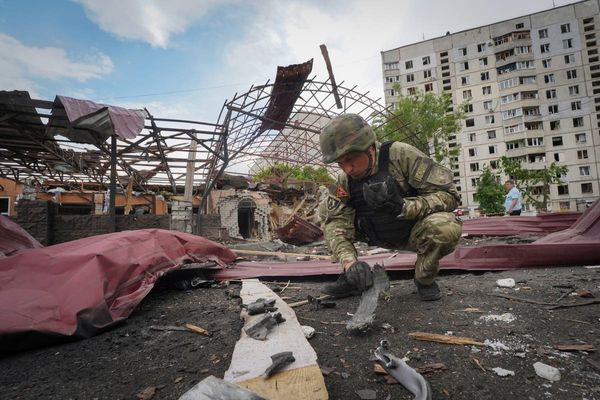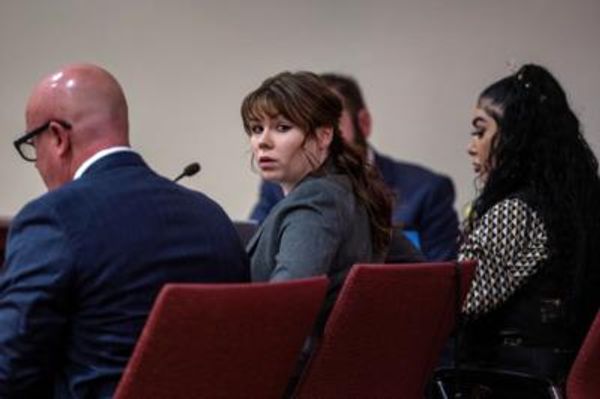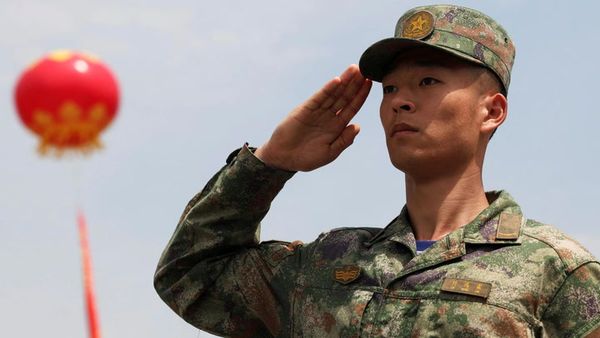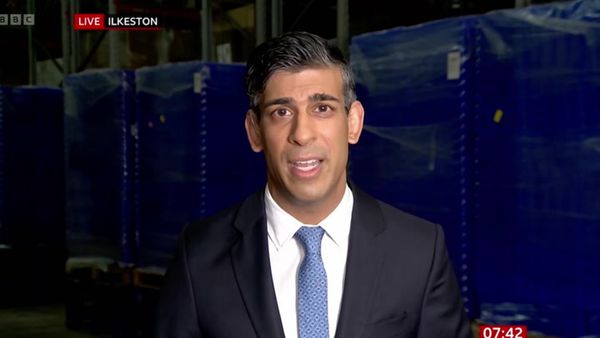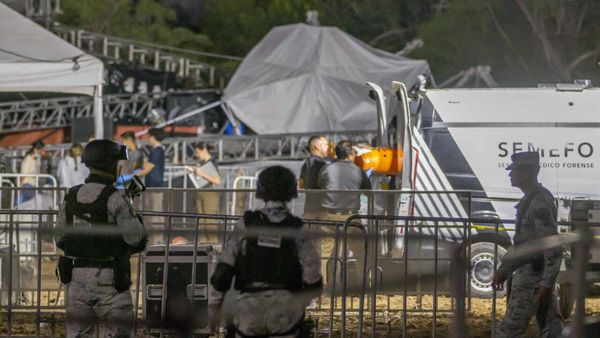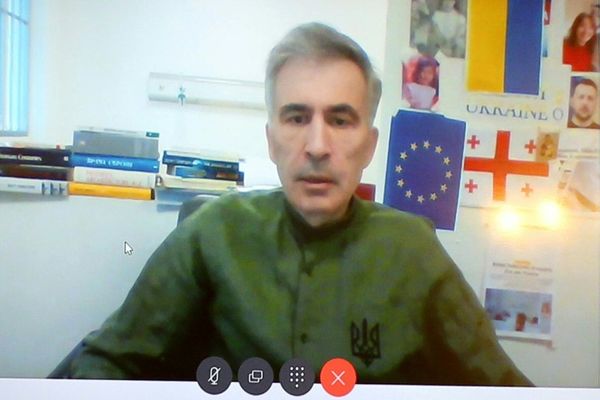
As the full-scale Russian invasion of Ukraine enters its third year, there seems to be no end in sight to the devastating war that has claimed hundreds of thousands of lives. In the aftermath of the ground and air attacks that shook the country from the early morning of February 24, 2022, millions of Ukrainians fled the country seeking safe harbour abroad.
Despite the risks, many members of Ukraine’s LGBTQIA+ community stayed behind to provide support to the most vulnerable. Activists and advocacy groups immediately began work on setting up shelters for civilians fleeing the frontlines in eastern Ukraine, helping internally displaced people find jobs and ensuring vital HIV and hormone medications were accessible.
All Ukrainians face immense challenges in the invasion, with LGBTQIA+ people dealing with these issues as well as additional threats. Trans and non-binary people found themselves unable to leave the country as their gender identity didn’t match passport details, with anti-LGBTQIA+ attacks from both Russian forces and fellow Ukrainians adding to the already distressing conditions.
Human rights violations
Dozens of war crime allegations have been reported by LGBTQIA+ people living in Russian-occupied territories of Ukraine. Homophobic attacks, rapes and even murders were allegedly carried out by Russian forces, according to information recorded by Oleksandr Zinchenko and his team of hate crime monitors that operate a countrywide network tracking anti-LGBTQIA+ attacks.
While the network has worked for more than 20 years to identify anti-LGBTQIA+ hate crimes, the Russian invasion and occupation saw a concerning rise in attacks.
“When ‘hot’ cases come to the attention of our monitors, we explain to victims their rights and opportunities that can be used in each case to restore violated rights. Based on our experience, we also talk about the problems they may have, for example, in connection with contacting the police,” says Zinchenko, who coordinates the network on behalf of human rights organisation Nash Svit (Our World).
In a recent case in Zaporizhzhia, a city in southeastern Ukraine, a 45-year-old gay man was beaten by a group of men who lured him to a date through a Telegram group for gay dating. The entire attack was filmed and posted on the Internet.
Once attacks are reported and documented, monitors try to get justice for survivors, as well as mental health support and legal representation. In the case of the gay man in Zaporizhzhia, monitors remotely advised the victim and drafted procedural documents to help make the police investigation as effective as possible.
For Andrii Kravchuk, a Ukrainian LGBTQIA+ activist and one of the founders of Nash Svit, the main issue facing Ukraine’s LGBTQIA+ community is exactly the same as the one facing all Ukrainian people — survival.
“More importantly we are fighting against the main provider of homophobia and transphobia in the world — the Russian government. The Kremlin is very strict in its rejection of any LGBT rights, both in Russia and worldwide,” says Kravchuk.
Ukrainian LGBTQIA+ activists have been clear that if Russia is to win the war, LGBTQIA+ rights in the country will completely regress and the community will be forced underground or out of the country.
Humanitarian assistance
Like most humanitarian organisations, Ukrainian LGBTQIA+ organisation Fulcrum relocated from the capital Kyiv to Lviv, a city in western Ukraine near the Polish border, in the days after the full-scale invasion.
“We opened two shelters in Lviv as safe spaces for LGBT people,” explains Tania Kasian, executive director at Fulcrum. “We provided humanitarian assistance, medicine and started offering psychological support.”
Once shelter guests got back on their feet, and had basic needs covered, they felt safe to move on. “We understood that we wanted to give people not just fish but the tools to catch fish themselves,” adds Kasian.
After around half a year, as there were signs that the situation in Ukraine was beginning to become relatively stable, Kasian and the Fulcrum team moved back to Kyiv and closed the crisis shelters.
New challenges soon emerged for Ukrainians who had experienced everything from forced relocations, daily missile attacks and witnessing the atrocities of war, leading Fulcrum to shift focus onto helping LGBTQIA+ people back into secure lives with a project called “Start from Scratch”.
“If a career consultant sees that a person needs it, we can provide crisis consultations. These consultations help people to move forward because it’s really hard to move on when you feel depressed, disappointed and don’t know how to live,” she adds.
As part of her job at Fulcrum, Kasian consults with businesses, politicians and other organisations to support the inclusion of LGBTQIA+ people in Ukrainian society. During these conversations, Kasian was struck by the positive impact openly gay and lesbian members of the armed forces were having on how Ukrainians viewed the LGBT community.
“Their visibility put the discussion of equal rights on the table, as the war showed a lot of gaps that we have with human rights,” she says. Ukraine does not currently recognise same-sex marriage or civil unions, leaving gay and lesbian couples without hospital visitation rights or the ability to make medical decisions for an unwell partner. A draft civil union law was introduced in Verkhovna Rada, the parliament of Ukraine, in March 2023. Despite the government committing to approve the bill by the end of 2023, it has failed to do so, leaving same-sex partners without access to state death benefits for soldiers who are killed.
In a survey conducted by the Kyiv International Institute of Sociology, around 68% of Ukrainians feel positive about the participation of LGBTQIA+ people in defending the country from Russian aggression, with less than 10% viewing this as a negative development.
Another survey by the institute shows major improvements in the support for legal equality for LGBTQIA+ people in recent years. In August 2022, just over half (54%) of Ukrainians expressed support for equal rights, with this figure growing to 72% in November 2023.
According to Kasian, before the full-scale invasion many LGBTQIA+ people wouldn’t be open about their sexuality at work.
“But after the experience on the frontline, a lot of LGBT people started talking about their sexual orientation because everything is black and white for them now,” concludes Kasian.
“Because it isn’t fair that LGBT people could die for a country which doesn’t recognise them as equals, with equal rights.”
